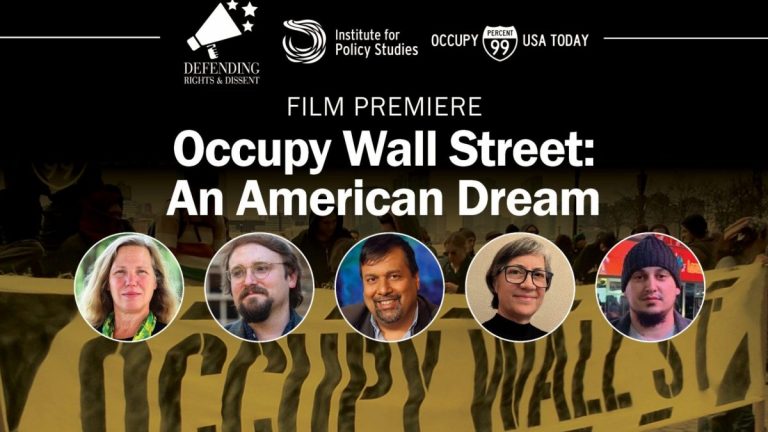Washington DC Premier Of Occupy Wall Street: An American Dream
In 2011, millions rose up against Wall Street gangsters who crashed the global economy. Occupy Wall Street: An American Dream (dir. Michelle Fawcett, 2025, 51 min.) is an electrifying look at how a populist upsurge swept the nation, put oligarchs on their back foot, and revived working-class politics. Reserve your seat to see the DC premier of this new documentary followed by a conversation with Dr. Margaret Flowers, Chip Gibbons, Omar Ocampo, and Arun Gupta.















